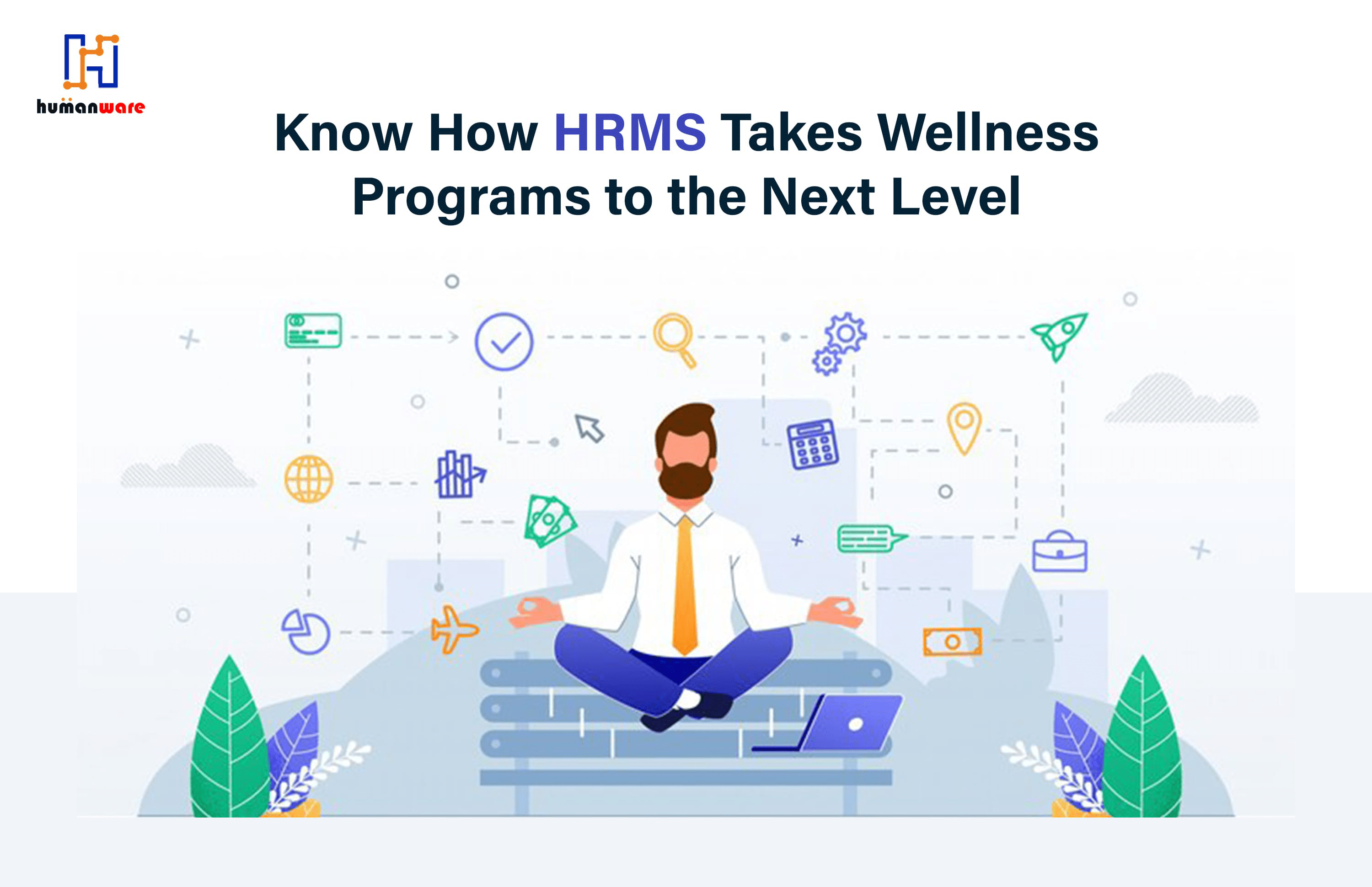
Know How HRMS Takes Wellness Programs to the Next Level
We as professionals have come a long way from experiencing transformation in the landscape and process of work. Traditional wellness programs often focus on the physical health of employees by providing benefits, such as gym memberships or nutrition seminars. While these initiatives are undoubtedly valuable towards individual health, the concept of employee well-being has evolved to encompass a broader spectrum of factors. Modern organizations understand that well-being is multifaceted and includes aspects such as mental health, work-life balance and social connections. Today employee well-being is at the forefront of modern workplace considerations, and organizations are increasingly recognizing the importance of fostering a healthy and supportive work environment. In this era of digital transformation, Human Resource Management Systems (HRMS) have emerged as powerful tools not only for managing administrative tasks but also for revolutionizing employee well-being through comprehensive wellness programs.
Today’s Human resource management systems (HRMS) have evolved beyond their original function of automating HR processes. They serve as a central hub for all matters related to employee management, including wellness initiatives. Let's take a closer look at how HRMS is revolutionizing employee well-being.
1. Personalized Well-Being Plans
HRMS platforms use data analytics to understand each employee's needs and preferences. This allows you to create personalized wellness plans that meet the diverse needs of your employees. Whether an employee is interested in mental health resources, fitness programs, or financial planning, HRMS can tailor wellness initiatives to meet individual needs.
2. Integrated Health and Fitness Tracking
Many HRMS platforms offer integration with health and fitness monitoring devices or applications. This integration allows employees to seamlessly monitor their physical activity, sleep patterns and other health-related metrics. The data collected can be used to provide personalized recommendations that promote a culture of health and well-being within the organization.
3. Mental Health Support
Recognizing the importance of mental health, HRMS platforms now include mental well-being features. These may include access to mental health resources, stress management tools and confidential counseling services. Integrating mental health support into your HRMS gives employees easy access to resources when they need them most.
4. Work-Life Balance Management
HRMS helps employees maintain a healthy work-life balance by facilitating effective time management. Features like time tracking, flexible scheduling, and remote work options help create an environment where employees can fulfill their professional responsibilities without risking their personal lives.
5. Financial Wellness Programs
Financial stress can significantly impact employee well-being. HRMS platforms often integrate financial wellness programs that provide resources for budgeting, investment planning, and debt management. These initiatives empower employees to make informed financial decisions, thereby reducing stress and contributing to overall well-being.
6. Social Connectivity
Creating a sense of community and social connection is essential to employee well-being. An HRMS can facilitate social interactions through features such as employee forums, virtual team-building activities, and recognition programs. Promoting a positive and supportive work culture contributes to a sense of belonging and overall satisfaction.
7. Real-time Feedback and Recognition
Regular feedback and recognition are essential elements of employee well-being. HRMS platforms enable real-time feedback and performance recognition, promoting a culture of recognition and motivation. Recognized employees feel appreciated more often, which has a positive impact on their well-being and job satisfaction.
As organizations continue to address the well-being of their employees, the role of HRMS in revolutionizing well-being programs becomes increasingly important. Using data, technology and a holistic approach to well-being, HRMS platforms empower employees to take control of their physical and mental health. The result is a more engaged, satisfied and productive workforce. Organizations that prioritize the well-being of their employees through innovative HRIS solutions will undoubtedly be leaders in creating thriving, resilient and efficient workspaces.